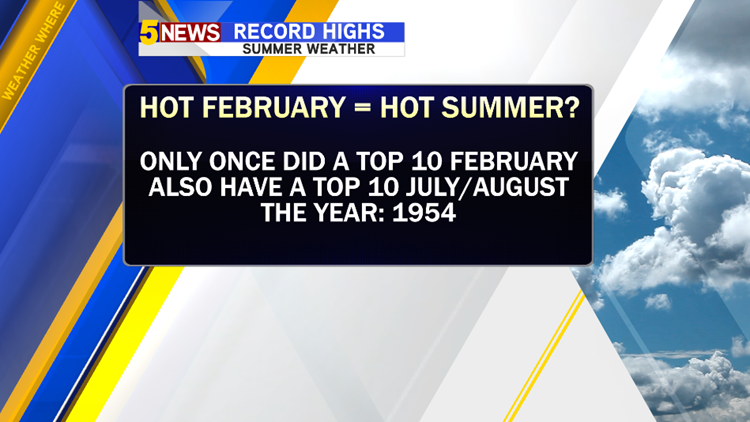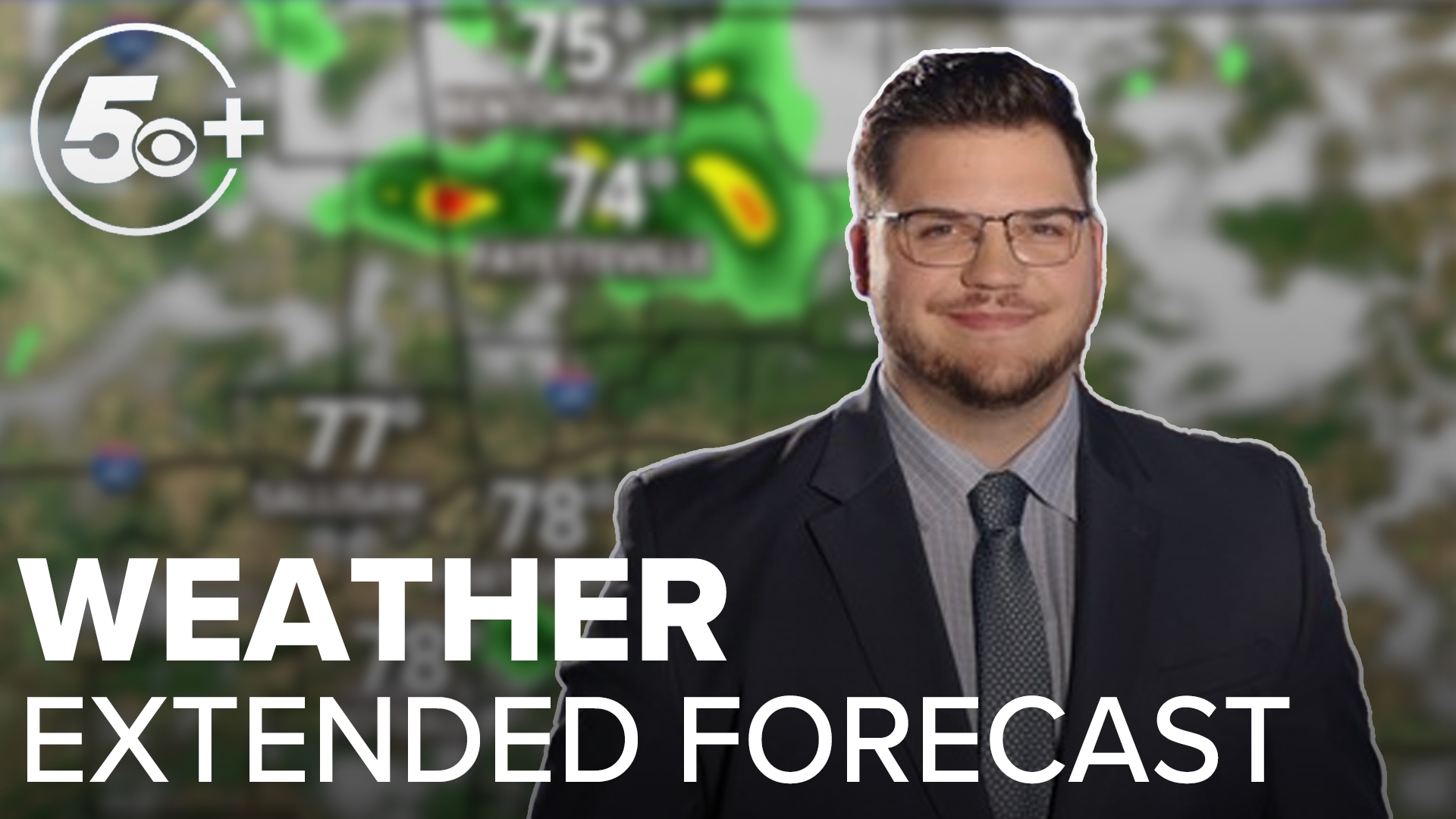If you’re like me, you’re wondering if a hot winter leads to a hot summer?
The short answer is no, not necessarily.

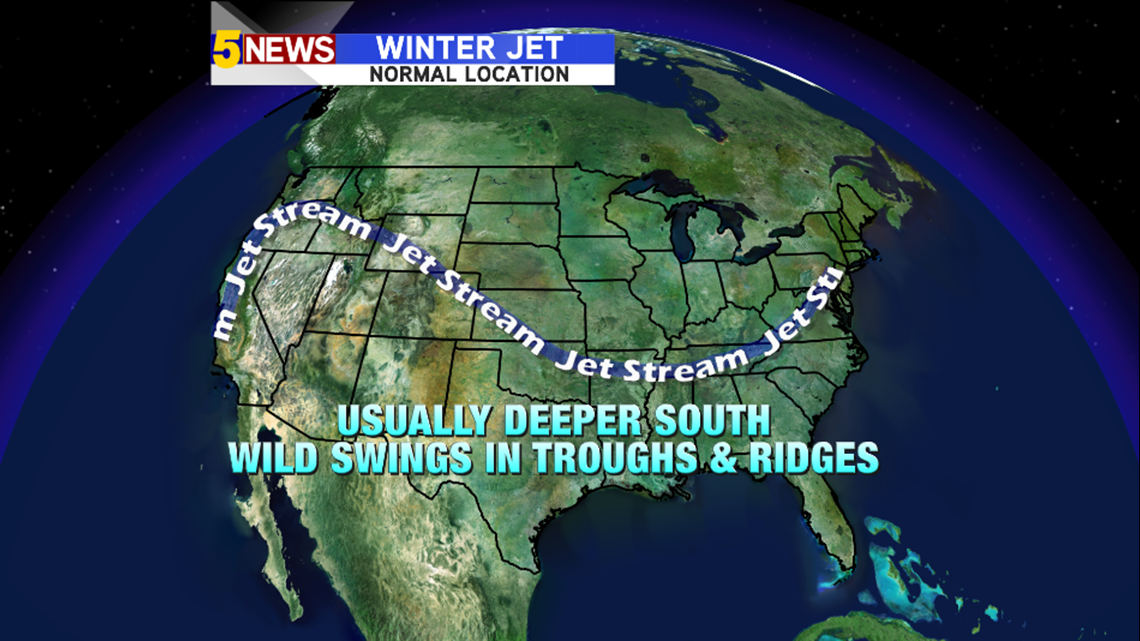
In Winter, the average position of the jet stream is usually farther south but it typically swings wildly leading to large changes in temperatures in small amounts of time.

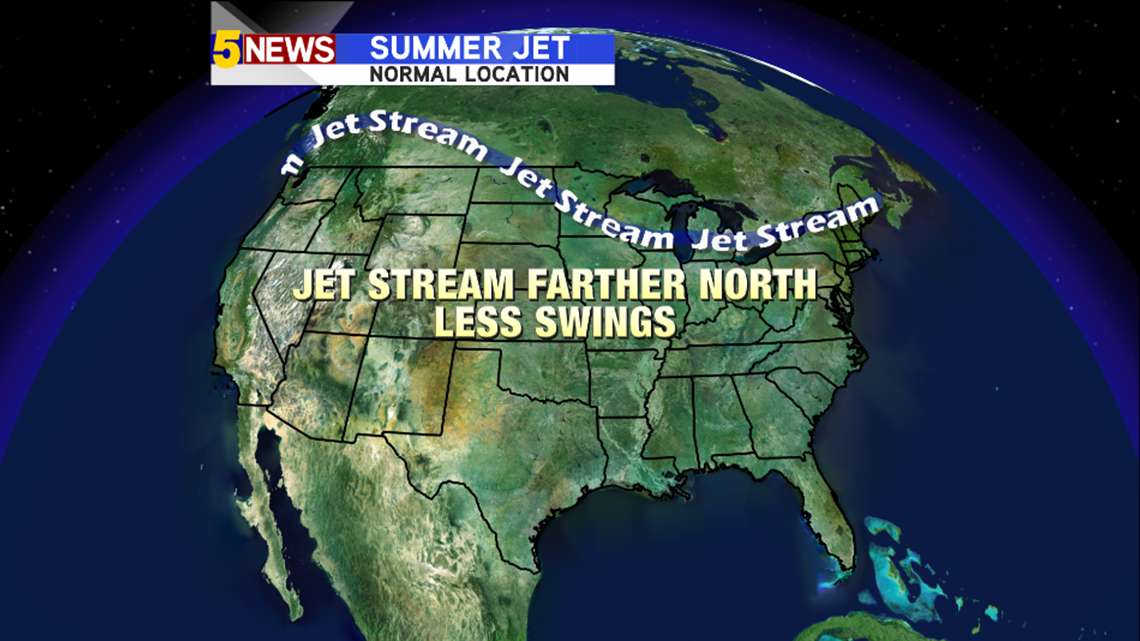
In Summer, the jet stream is farther north with fewer swings to the south.
One thing that usually DOES lead to a hot summer is a drought or dry Spring.
Usually dry conditions will ‘pump the ridge’ of high pressure and amplify the heat.
Thankfully, there is not a strong correlation between hot February’s and hot July & August months (usually the hottest months of the year).

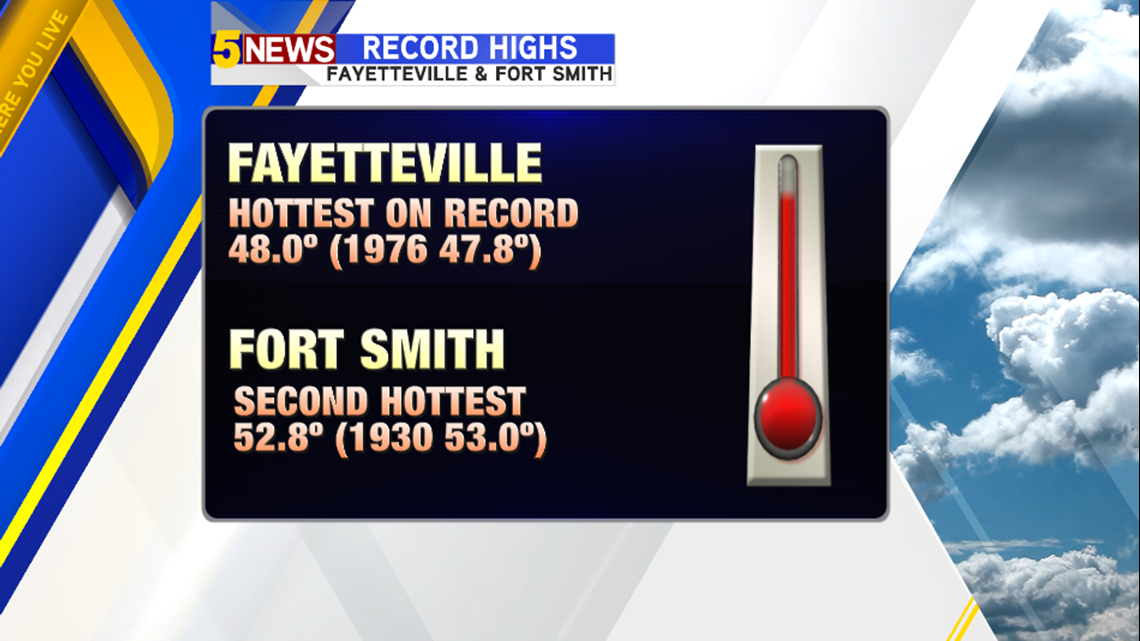
February 2017 is on pace to be the hottest on record but how does this compare to other years?
Top 10 Hottest February
- 1930
- 1932
- 1999
- 1976
- 1927
- 2000
- 1992
- 1954
- 1938
- 1957
Top 10 Hottest July
- 2011
- 1934
- 1954
- 2012
- 1993
- 1998
- 1936
- 1930
- 2001
- 1943
Top 10 Hottest August
- 1936
- 2011
- 1934
- 2010
- 1943
- 2000
- 1954
- 1947
- 1980
- 1938
Only once did a Top 10 Hottest February lead to a Top 10 Hottest July & August: That year was 1954.
There were two Top 10 February years that also had a Top 10 July: 1930, & 1954.
Three Hot February years matched hot August years: 1938, 1954, & 2000.
(Data from Fort Smith, AR since temperature record goes back farther than Fayetteville)

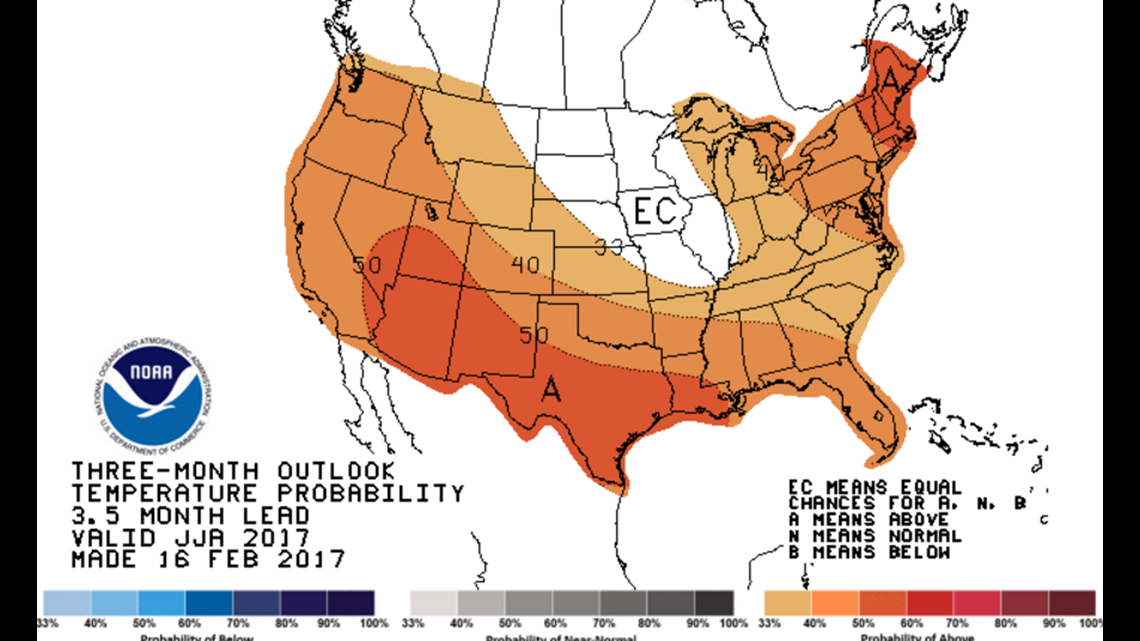
The latest Climate Prediction Center forecast shows only slightly higher chances for an ‘above normal’ June, July, & August.
While the weather offers no guarantees and is a pro at humbling meteorologists (yours truly), I wouldn’t be too concerned that the upcoming summer will be a full blown scorcher based on how hot February has been.
-Garrett


